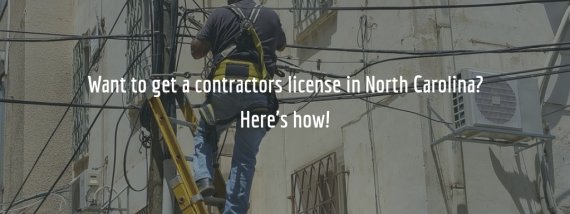How Can Women Contractors Get More Federal Contracting Opportunities?
Much has been said about the shortage of skilled workers in the construction industry. We addressed it in an article and an infographic. While there is no easy and straightforward solution to this problem, one of the ways to address it would be to boost participation of women contractors and women-owned businesses in construction.
Currently, they comprise a small fraction of the whole industry (about 10 percent), but have the potential to expand and at least partially alleviate the shortage. For that to happen, however, women contractors need to be incentivized to step up their role. What are the ways to do that? Here are just a few suggestions.
What Contractors Think
Recently NASBP SmartBrief polled contractors to ask them how the federal government could boost contracting opportunities for women-owned companies. The findings reveal three main ways.
4.17 percent of respondents said this could be done through securing more contracts for women-owned businesses. The same percentage of them said Women's Business Centers should receive more money. 8.33 percent think women-owned businesses need greater access to capital, while 25 percent of respondents believe all three measures will be successful. Let's look at these three suggestions in detail and see why they are important.
#1 Securing More Federal Contractors to Women-Owned Firms
The federal government is supposed to award 5 percent of contract money to women contractors. So far, this has never been the case. Attempts to remedy the problem have proven unsuccessful.
 For example, in 2011 a program was set up to ensure more contracts for women-owned businesses in industries where women are underrepresented. Unfortunately, less than 1 percent of all federal contracts are actually awarded to them through this program. The main problem seems to be that this is the only program of this kind that doesn't use sole source contracts. Sole source contracts, colloquially known as no-bid contracts, allow the side awarding the contract to negotiate the conditions with only one company, instead of placing it out for a bid.
For example, in 2011 a program was set up to ensure more contracts for women-owned businesses in industries where women are underrepresented. Unfortunately, less than 1 percent of all federal contracts are actually awarded to them through this program. The main problem seems to be that this is the only program of this kind that doesn't use sole source contracts. Sole source contracts, colloquially known as no-bid contracts, allow the side awarding the contract to negotiate the conditions with only one company, instead of placing it out for a bid.
A similar initiative on a state level was undertaken by Virginia's governor Terry McAullife, who signed an executive order “that calls for 42 percent of the spending in various executive branch contracts to go to” companies owned by women or minorities.
#2 Providing Women's Business Centers with More Funding

Women's Business Centers is a network of close to 100 educational centers, overseen by the Small Business Administration (SBA). They were “designed to assist women in starting and growing small businesses.”
Each year, more than 130,000 women benefit from the program, often women coming from socially and economically disadvantaged backgrounds. And while Women's Business Centers is generally regarded as effective, the organization lacks the necessary funds to expand and improve. The funds are provided both by the government and by non-profit organizations. Government funding, however, hasn't increased much in the past few years.
The Senate Small Business & Entrepreneurship Committee reviewed the program and concluded that it needed to be updated, as the last time it was reauthorized was in 1999.
#3 Giving Women Contractors Greater Access to Capital
It sounds logical that a female business owner should have the same chance getting a business loan as a male business owner. Surprisingly, that is not the case.
 Statistics reveal that women get only 16 percent of all loans awarded to small businesses, despite owning around 30 percent of them. The situation is even worse when you look at the dollar value of the loans – a mere 4 percent of the value of all business loans goes to women. In the last 5 years, the SBA has stepped up its lending efforts by a third, but there is still a long way to go to ensure equal opportunities for women contractors. Not all is grim, however -- one of SBA's programs, namely the micro loan lending program, seems to be working well, as more than half of its beneficiaries are women business owners.
Statistics reveal that women get only 16 percent of all loans awarded to small businesses, despite owning around 30 percent of them. The situation is even worse when you look at the dollar value of the loans – a mere 4 percent of the value of all business loans goes to women. In the last 5 years, the SBA has stepped up its lending efforts by a third, but there is still a long way to go to ensure equal opportunities for women contractors. Not all is grim, however -- one of SBA's programs, namely the micro loan lending program, seems to be working well, as more than half of its beneficiaries are women business owners.
One of the steps the federal government should undertake is to increase the amount of money that can be lent out to women-owned businesses and make the process as straightforward as possible.
Conclusion
Taking steps towards these three measures will no doubt alleviate the problem with women contractors and women-owned businesses. Yet one thing remains unclear. Almost 60 percent of the polled contractors in SmartBrief's survey said that none of the above-mentioned measures will boost contracting opportunities for women contractors.
Why do you think that is? What other ways can be used to achieve the desired results? Share your opinion with us below!
- Fast and Secure Application
- Nationwide Coverage
- Approval in Minutes
- Money Back Guarantee
Recommended Articles
- Fast and Secure Application
- Nationwide Coverage
- Approval in Minutes
- Money Back Guarantee
- Image

- Image

- Image

Lance Surety Bond Associates, Inc. is a surety bond agency based out of southeastern Pennsylvania that is able to write all surety bond types in all 50 states. We are dedicated to servicing all of our customers' surety bonding needs throughout the country and guarantee competitive rates, timely responses, and unparalleled customer service.








